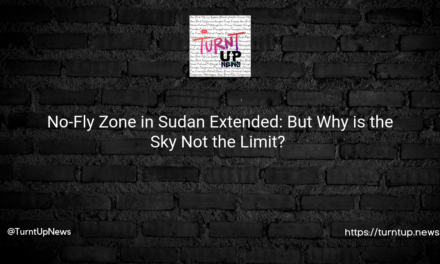💔 “Til Death Do Us Part” Gets Real: 100 Revelers Returning From Wedding Perish in Nigeria Boat Tragedy 🚤💥
TL;DR: Early Monday, the joy of a wedding party turned to horror as a boat returning home capsized in the Niger River, Nigeria. Police reports suggest around 100 people lost their lives, including women and children. Although rescue efforts are underway, boat accidents are not uncommon in Nigeria, with many being attributed to overloading and poorly maintained vessels. So, should a late-night wedding bash end in a watery grave? 🤔
A night of celebration took a turn for the worse this week when a boat, ferrying home merry guests from a wedding, capsized in the Niger River in northern Nigeria. A hearty “cheers” transformed into desperate cries for help as the boat, overloaded with joyous revelers, met its watery fate. The police say the toll of this tragedy could be as high as 100, a sobering reminder of the fragility of life amidst a night of joy and jubilation.💔🌊
According to police spokesman Okasanmi Ajayi, the incident occurred near the state of Kwara, close to neighboring Niger state. The victims, encompassing women and children, were returning from an overnight wedding ceremony in the village of Egboti. The party that danced under the moonlight ended in a star-crossed disaster that has left an entire community in shock. 🌙💃⚡
The boat sank at the ungodly hour of around 3 a.m. Usman Ibrahim, a local resident, stated that the late timing of the incident led to many victims drowning because help was not immediately on hand. As of Tuesday afternoon, officials and locals continued their desperate search for more bodies in the Niger River, one of Nigeria’s largest. 🌌🚤🌊
Why did this happen, you might wonder? 🧐 Well, in Nigeria, boat accidents are unfortunately commonplace. The reasons? Overloading and the use of poorly maintained boats. The boat that was supposed to bring the wedding party safely home was overloaded with over 100 passengers and their bikes. In the festive atmosphere, nobody realized the ticking time bomb they were boarding.
The tragic event raises numerous questions about safety regulations and the disregard of fundamental precautions, especially in remote communities across Nigeria where locally made vessels are commonly used for transport. The thrill of a joyous event took precedence over safety, resulting in a disastrous outcome.
But the question that stands out amidst the sorrow: Who’s going to ensure such a catastrophe doesn’t repeat itself? As we mourn the loss of those who went from a wedding party to their untimely demise, we need to ask: Are we ready to challenge the status quo and demand better safety measures? Shouldn’t a wedding party return home with memories of dance and laughter, rather than not returning home at all? 💔🚤🛠️
Disclaimer: This article does not provide recommendations on transportation safety measures. It is meant for informational purposes only.
How many more lives need to be lost before action is taken to improve transportation safety in Nigeria? We’d love to hear your thoughts. 🤔





